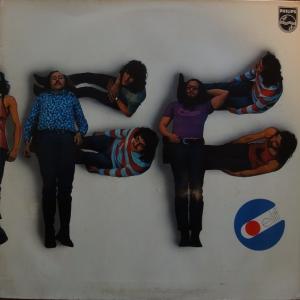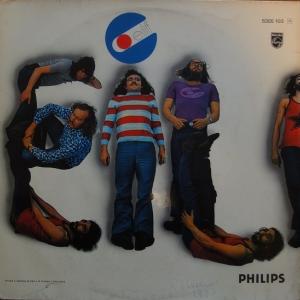Eiliff
by Eiliff


Artist:
Eiliff
Label:
Philips
Catalog#:
6305 103
Format:
Vinyl
Country:
Germany
Released:
1971
| Tracklist | |||
| A1 | Byrd-Night Of The Seventh Day | 5:02 | |
| A2 | Gammeloni | 6:43 | |
| A3 | Uzzek Of Rigel IV | 10:54 | |
| B | Suite | 20:46 | |
Credits
Eiliff - Arranged By
Bill Brown (18) - Bass Guitar
Bill Brown (18) - Composed By
Detlev Landmann - Composed By
Herbert Kalveram - Composed By
Houschäng Nejadépour - Composed By
Rainer Brüninghaus - Composed By
Witt - Design [Album]
Detlev Landmann - Drums
Houschäng Nejadépour - Electric Guitar, Acoustic Guitar, Twelve-String Guitar, Sitar
Conny Plank - Engineer
Rainer Brüninghaus - Organ, Electric Piano, Sounds
Rainer Goltermann - Producer
Herbert Kalveram - Saxophone
Notes
Released in a gatefold cover.
Recorded at Star Studio, Hamburg, June 1971.
Strawberry Bricks Entry:
Hailing from Stuttgart, Germany, Eiliff were formed in 1970 by pianist Rainer Brüninghaus, saxophonist Herbert Kalveram, guitarist Houschäng Nejadépour and a rhythm section of drummer Detlev Landmann and bassist Bill Brown. The Berlin-born Nejadépour had momentarily been a member of Kraftwerk, but his guitar style was deemed unsuitable. Eiliff’s first recording was the single “Ride on Big Brother” b/w “Day of Sun.” The two psychedelic tunes are unmemorable, save for the electrifying pyrotechnics of Brüninghaus on the A side, and Nejadépour on the flip. Their debut, however, was a completely different matter. Titled Eiliff, it was recorded in Hamburg with Conny Plank and released on the Philips label in 1971. After the short introductory number, “Byrd - Night of the Seventh Day” illustrates the band’s adept take on jazz-rock: out of the box, Eiliff is fully formed and richly conceived, with music on equal footing with the British greats from the era. “Gammeloni” stretches out to give room for Kalveram’s lengthy solo. “Uzzek of Rigel IV” is a vocal number with a brooding riff, recalling the dark prog of Van der Graaf Generator. It yields to a slow groove, on which Nejadépour’s guitar shines. The second side comprises the 20-minute “Suite.” It’s another aggressive and awesome display of the band’s fusion of rock and jazz, interspersed with a sitar break before again launching into an organ-led jam. A second album Girlrls! was recorded with Philips producer Rainer Goltermann in 1972. Another mostly instrumental affair, it leans more on the jazz side of jazz-rock, but also with a couple of vocal numbers, lest we not forget the band’s psychedelic edge. However, the band split, as Brüninghaus accepted an offer to work with Volker Kriegel. Nejadépour would join Guru Guru in 1973 for an album, while Brüninghaus joined Eberhard Weber’s Colours before a long career as a session musician. Brown was a founding member of the punk/new wave band Fred Banana Combo.

